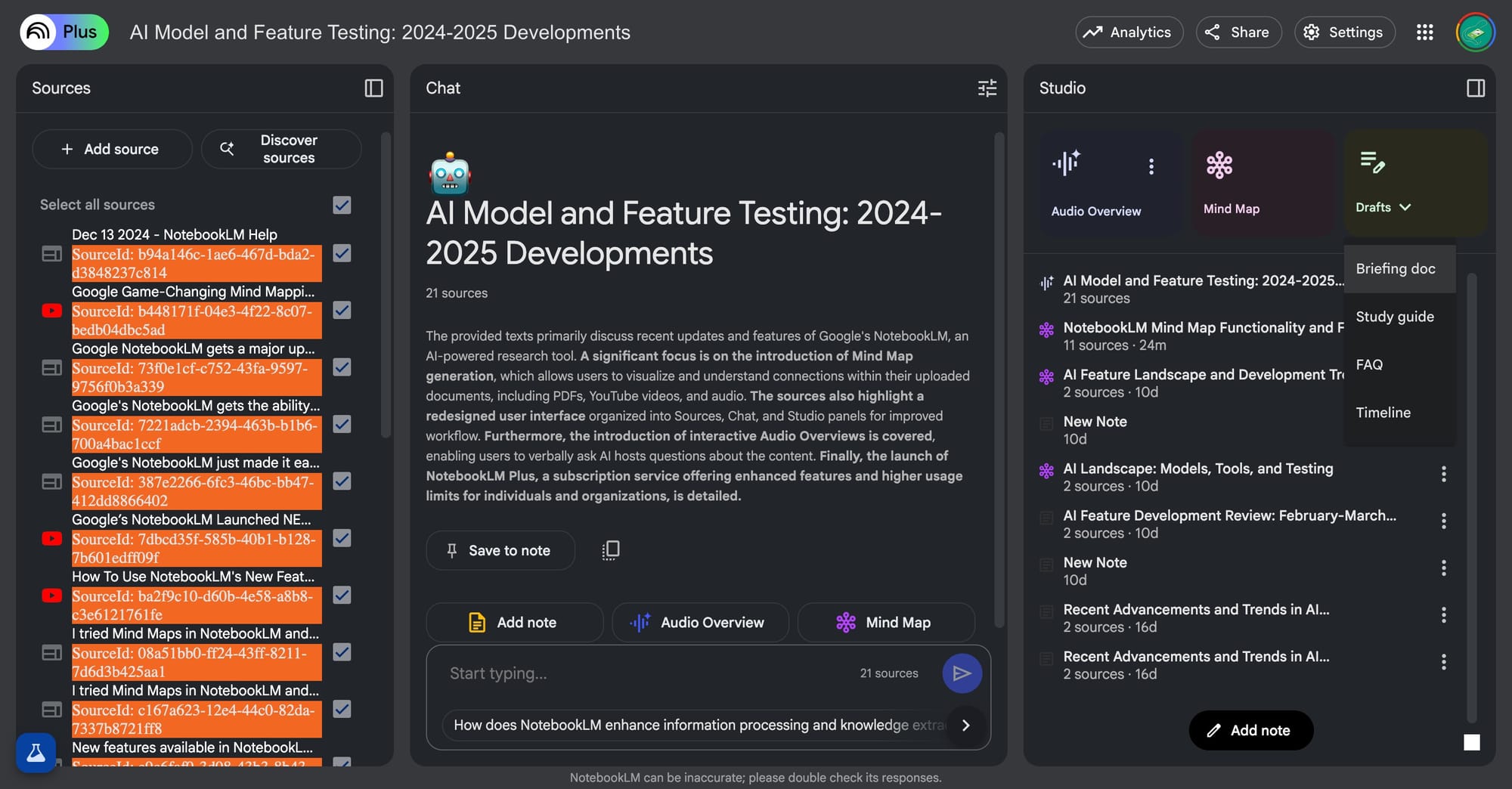Google's NotebookLM is undergoing significant updates, introducing new features aimed at enhancing its functionality as an AI-powered research assistant. These developments reflect Google's ongoing efforts to refine its AI tools and integrate them across platforms.
Discover Sources
The "Discover Sources" feature has been updated and now appears functional (while still hidden), and it will allow users to search for keywords and import relevant sources into their notebook knowledge base. On average, it identifies around 10 results, although not all URLs are suitable for notebook use cases. Users can manually select which URLs to import, ensuring greater control over their knowledge base. The previously available "Deep Search" button has been removed, but a new "I am feeling curious" option enables random topic searches.
Early preview of the "Discover Sources" feature on NotebookLM.
— TestingCatalog News 🗞 (@testingcatalog) March 29, 2025
It will allow users to search for a certain keyword and import found sources to the knowledge base.
Plus some minor UI changes to the right tab 👀 pic.twitter.com/fxPoLjhmM2
Additionally, the interface on the right side has been revamped with three action buttons:
- Audio Overview generation
- Mindmap creation
- Note generation
These tools provide users with diverse ways to interact with their uploaded materials.

Future Plans
The NotebookLM team has hinted at broader integrations, such as offering an API and incorporating the Model Context Protocol (MCP) for seamless connectivity with external data sources. They are also exploring options for varied voices and formats in Audio Overviews to cater to different user preferences.
NotebookLM team has been answering several questions from the public recently.
— TestingCatalog News 🗞 (@testingcatalog) March 26, 2025
Here is the top 2 confirmations 👀
- More voices and show formats are coming
- API and MCP integration are in the works https://t.co/YPb1xsi8Le pic.twitter.com/KTomUkYz86
About NotebookLM
NotebookLM is part of Google's strategy to position itself as a leader in AI-driven productivity tools. Its features like Audio Overviews and Mindmaps aim to simplify complex information processing. The integration of MCP could further enhance its utility by enabling real-time access to external data sources.
These updates align with Google's broader vision of creating interconnected AI systems, as seen in the cross-pollination of features between NotebookLM and Gemini. While these features are still in development, they highlight Google's commitment to addressing user feedback and expanding its AI ecosystem.






